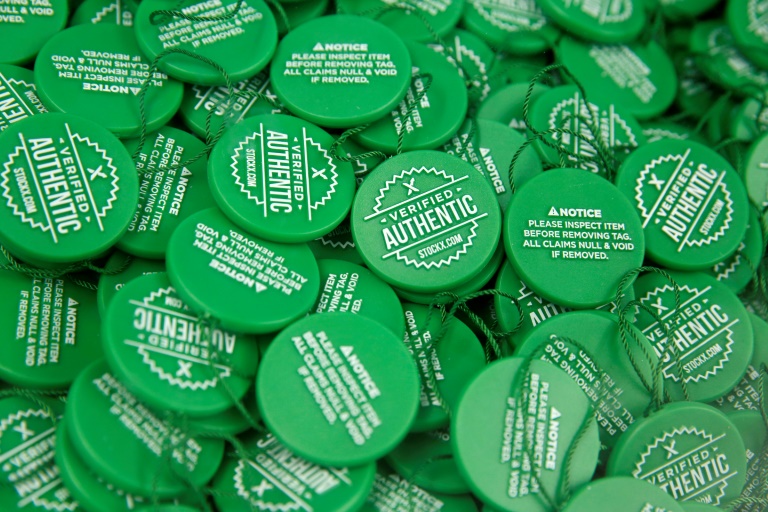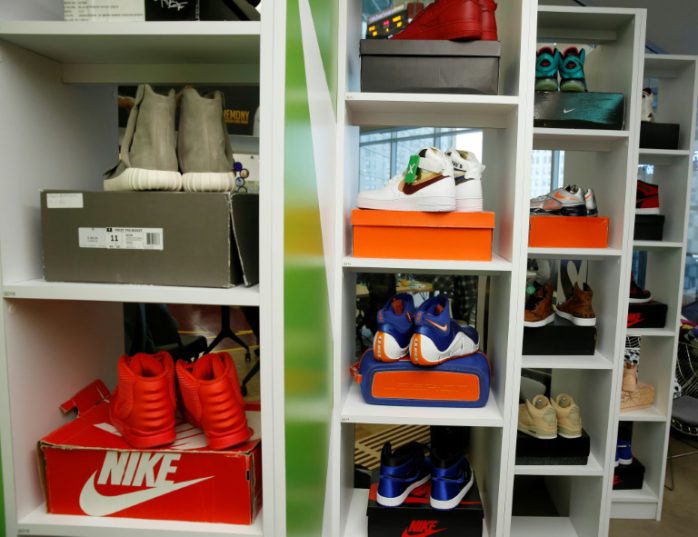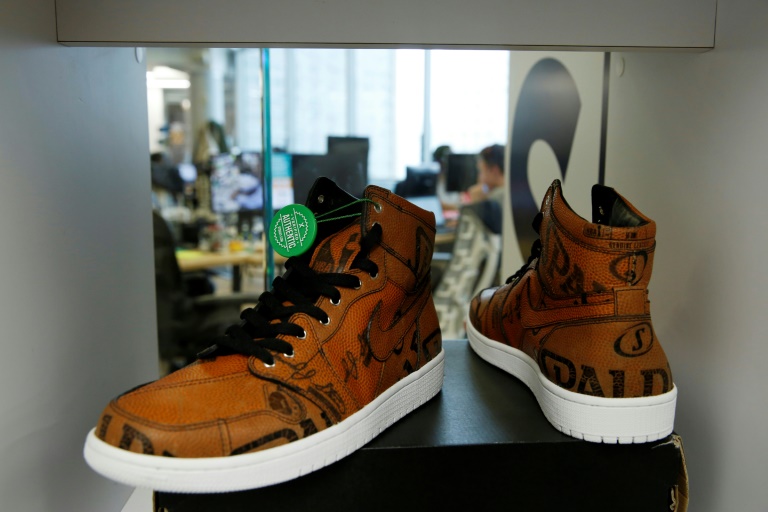Lategan has Dakar Rally title in his sights after regaining race lead
Located on the 10th floor of an ultra-modern building in downtown Detroit and backed by investors that include the rapper Eminem and actor Mark Wahlberg, StockX is an exchange to buy and sell athletic shoes, including limited-editions or collector’s items.
As with other trading floors, prices on the world’s first sneaker exchange fluctuate based on consumer perceptions, and can sell for hundreds or thousands of dollars.
Instead of poring over the utterances of central bankers, participants on StockX — which has expanded into handbags, watches and streetwear — monitor Instagram to see what Hermes bag Kim Kardashian is carrying or what is on Kanye West’s feet.
The market’s main floor has a display of Air Jordans and shoes by Nike, Adidas and other brands in a variety of colors. All have been verified by the exchange for authenticity.
A few feet away, a team of young women inspect handbags by Chanel, Louis Vuitton and Hermes.
“StockX is a stock market of things,” said founder and chief executive Josh Luber.
“We just connect buyers and sellers but the method by how we connect buyers and sellers is exactly the same way that the world’s stock markets connect buyers and sellers.”
Not unlike Nasdaq, the electronic exchange located at Times Square in Manhattan, StockX has a scrolling display that updates prices with each new transaction.
On a recent wintry morning in early January, an order of the Air Jordan 10 Retro Drake OvoWhite went for $400.
Eminem also has conducted business on the exchange, selling a re-release of the limited-edition Air Jordan 4 Encore. The offering was part of a fundraising drive for Detroit communities that raised more than $200,000.
Although most participants are in the US, the virtual exchange, which opened two years ago, also has a solid clientele in China.
StockX tracks different “sectorals,” such as the “Jordan Index,” the “Nike Index” or the “Adidas Index,” which aggregate prices for various items.
Just off the main room, a group of “analysts,” glued to their screens, collect and number-crunch the latest transactions and manage the catalogue.
– Recognizing knockoffs –

Tags that are placed on items that have been authenticated by Stock X are pictured in their offices on January 10, 2018 in Detroit, Michigan. This bag was sold for 00 USD and the money will be refunded to the seller. StockX is a live auction site for resale of high-end sneakers, handbags, streetwear and watches. StockX experts authenticate items sold through their site
Someone who wants to sell a pair of Air Jordans, for example, would need to open a StockX account, and then “literally all you have to do is click one button, ‘sell’ and just accept that highest offer,” said Luber, a former consultant for IBM.
Once a bid is accepted, the seller must send the item to the exchange headquarters in Detroit or to the company’s other authenticators in Phoenix, Arizona, who verify that the product is not a copy.
“Every time I get a pair of shoes I smell them because that glue is so so particular,” said sneaker authenticator Aaron Fields.

Shoes are displayed at the offices of Stock X on January 10,018 in Detroit, Michigan. This bag was sold for 00 USD and the money will be refunded to the seller. StockX is a live auction site for resale of high-end sneakers, handbags, streetwear and watches. StockX experts authenticate items sold through their site.
“You know like Jordans and Nikes and Adidas all have different smells and you just have to know them,” he said. “Fake shoes smell a little bit different.”
The tell-tale signs of a knockoff vary by item.
“This one has a lot of uneven stitching double stitching, wrong type of thread,” said Michelle Winkfield, a handbag authenticator, examining a Louis Vuitton fake.
“The hardware feels really cheap and the logo stamped on it is incorrect.”
StockX penalizes sellers of fake goods, charging them 15 percent of the transaction price, and possibly banning them from the exchange. But fewer than two percent of the transactions have been canceled for this reason, Luber said.
The exchange on trades in new sneakers, while watches and handbags must be in “excellent” condition.
The exchange charges a 9.5 percent commission on each sneaker transaction, which comprised about three-quarters of revenues last year. It charges 11.9 percent for watches and 14.5 percent for handbags.
Started with just a workforce of five including the founder, the growing exchange now has 115 employees.
The future may mean expansion into new items, like Star Wars paraphernalia, musical instruments, rare wine, collectible cars and artwork.

A pair of Air Jordan 1 Retro High shoes that have been authenticted are on display at the offices of Stock X on January 10, 2018 in Detroit, Michigan. This bag was sold for 00 USD and the money will be refunded to the seller. StockX is a live auction site for resale of high-end sneakers, handbags, streetwear and watches. StockX experts authenticate items sold through their site
There are no immediate plans to raise funds from additional investors, beyond the current group that includes Quicken Loans founder Dan Gilbert, who also owns the Cleveland Cavaliers basketball team.
Download our app and read this and other great stories on the move. Available for Android and iOS.